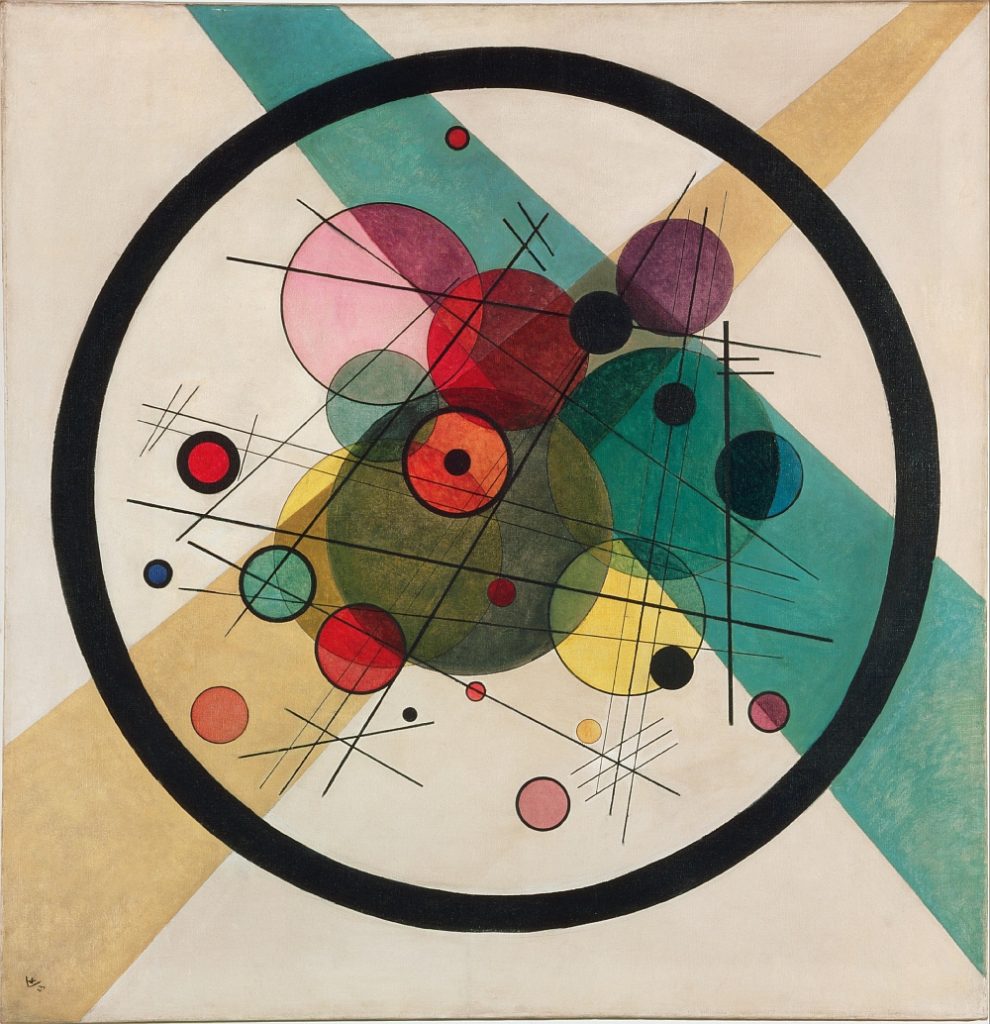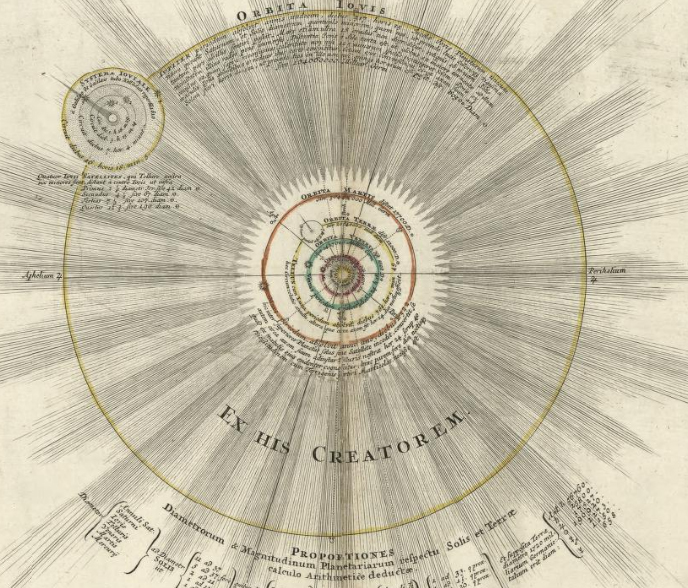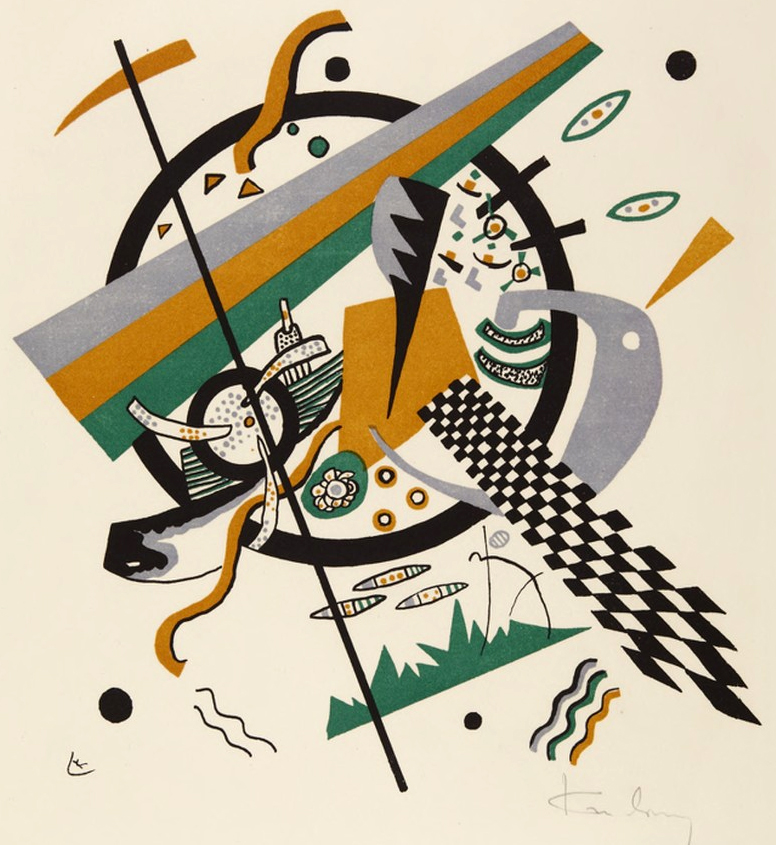A message for the season:

Vasily Kandinsky, Circles in a Circle, 1923
Our modern concept of harmony derives from the Greek goddess Harmonia, the goddess of harmony and concord. Harmonia personifies order and civic unity, representing the love that unites all people.
Creating harmony lies at the foundation of our wish for a peaceful world, and for a good reason: a harmonious world allows each person to thrive, despite conflict and differing opinions. These values, often expressed in the holiday season, mirror the core values of many religions and philosophies, as well as most civil societies, around the world. In addition, the concept of harmony is often embedded in the arts, as in fine art and music that strive for harmonious placement of images or the blending of musical notes to form a pleasing whole. Harmony has even been a theme in mathematics and astronomy, for example in Kepler’s “music of the spheres.”

Johann Baptist Homann, Systema Solare et Planetarium (detail), 1716
Among people, peace and harmony may be achieved by balancing the interests of all parties—by dealing with disputes and resolving conflicts fairly through compromise, to further enhance the welfare of each individual along with the wellbeing of society as a whole. Peace and harmony can be difficult to achieve in a world filled with conflict, war, and catastrophes; in a climate not only of differing opinions, but where a propensity to ignore or shut out the opinions of others prevails.
Building peace and harmony therefore begins within ourselves. We can nurture our inner harmony by building positive connections in our own families, friendships, and communities. We can express our commitments to inclusiveness and fairness by how we think about and treat others: in our homes, in our workplaces, on our streets and sidewalks, in our shared institutions. We can reflect our best values by turning them outward, working to practice them in our lives, in civil society, and in the world at large.
We in the Guild can build harmony and inclusiveness in the same way we pursue our core, and quintessential, union-based principle of solidarity: with respect and empathy. We must also strive to create a balanced harmony in our union and in our workplace by recognizing that while adhering to norms and shared expectations promotes group cohesion and stability, an overemphasis on conformity can stifle individual expression and creativity. Nurturing the individual stimulates innovation and adaptability, while too much competition can lead to social discord and to putting our own interests above those of others. In harmony we will thrive.

Johann Sebastian Bach, from The Well Tempered Clavier, Book II, British Library
We must also strive to move these core values out into the world beyond our own families and communities, by expressing them in the political, social, and economic worlds. With a second new war in as many years hand, we must be thoughtful anew about such evils such as antisemitism, Islamophobia, apartheid, and ethnonationalism—or any other form of discrimination, racism, or race based oppression, at home or abroad. We must also struggle through the disharmony that war, internal displacements, forced migration, global warming, and other catastrophic events—some sudden, some slowly emerging over decades—will bring to our world, this Earth. And yes, we must empower leadership and our country to strive to solve these problems, in a multi-dimensional world that exists beyond the United States, in the hopes that some level of harmonic balance can be achieved.

Vasily Kandinsky, Kleine Welten (Small Worlds) IV, 1922
For now, the Guild wishes you inner peace and harmony in this holiday season, and looks forward to pursuing our shared goals, together, in the new year.
Best holiday wishes to our Library Community.
In solidarity,
Anne Toohey
Guild President
